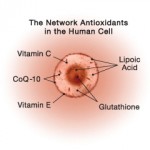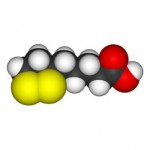Do you need to learn more about heart disease, pain, liver disorders, male infertility, Cancer, Parkinson’s Disease, Alzheimer’s, inflammatory diseases or are you concerned about your aging body? If so, you’ll be well advised to do a little bit of research on antioxidants and of all the antioxidants you can look into, you should learn more about Glutathione.
Glutathione, a small molecule in the body, is formed by three amino acids. The product of these amino acids exists in every cell in your body. But, it can only be produced by your body. Glutathione is vital to your immune system. It aids in the production of lymphocytes, the cells that combat particular diseases and illnesses . These cells produce oxiradicals to protect us from diseases, and to produce them , the body needs more antioxidants. Your body will also, ironically, use antioxidants to get rid of the free oxyradicals .
We can use the food we eat to fuel the creation of the amino acids needed to also manufacture glutathione as well as building it from the acids already there in the cells . There are a variety of foods to provide the fuel to make glutathione. Watermelon and asparagus are two such foods , as are many other fresh vegetables, fruits, and meat . Whey protein is also a good source . Oral glutathione supplements are not usually absorbed into our systems. That’s a shame, since our ability to manufacturer glutathione declines dramatically after our twenties. Glutathione precursors like Cellgevity on the other hand, will help our body boost Glutathione production.
It’s important to note that Cellgevity as a precursor does not contain Glutathione. It contains other substances that your body uses to help it manufacture more glutathione on it’s own.
Glutathione has earned it’s reputation as the Master antioxidant. It will also help our body make repairs caused by infection, radiation treatments, stress, injury, poor diet, and even burns and trauma . Antioxidants remove free radicals. This keeps our cells working as they should . Glutathione also aids the liver to remove foreign chemicals and other pollutants . As a matter of fact, most glutathione is manufacturered in your liver.
Who should look at increasing the amount of glutathione or supplementing with Cellgevity? Anyone who is dealing with high blood pressure, cancer, Alzheimer’s, Parkinson’s Disease, cataracts, or male infertility issues may benefit from more glutathione. It can also help when recovering from chemotherapy and other radiation treatments. However, it is important to note that studies are still being done on glutathione, and it may not affect everyone in the same way.
Increase your glutathione with Cellgevity


